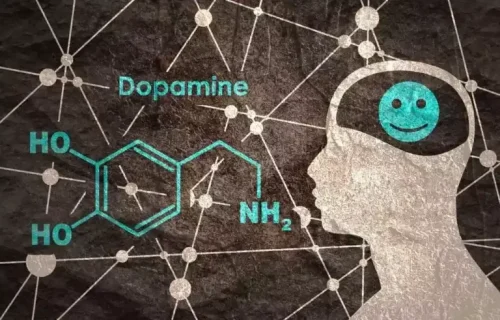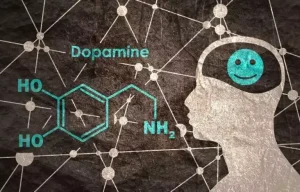Кто такой senior product manager значение профессии, плюсы и минусы, зарплата, отзывы
abril 5, 2022Теория Доу Джонса, как торговать по данному методу на Форекс?
noviembre 29, 2022
And it’s not known how much resveratrol is needed to protect the heart. The amount of resveratrol in food and red wine can vary widely. But if you already have a glass of red wine with your evening meal, drinking it in limited amounts may improve your heart health. Drinking alcohol every day, in fact, can raise your chances of getting atrial fibrillation (AFib), a condition that makes your heart beat really fast and out of rhythm.

Highest vs. Lowest Analysis
This can lead to serious illnesses that keep your blood from moving and clotting properly, like diabetes and heart disease. Some healthy foods that are high in vitamin K can make blood thinner medication like warfarin (Coumadin) less effective. It’s not recommended that you start drinking alcohol if you don’t normally. Having the restraint to consume only moderate amounts of alcohol may be challenging for some individuals. Like vitamin K, these all contain compounds that can counteract the good things that blood thinners do. Watermelon, apples, bananas, pears and peaches are also safe fruit choices.
Lifestyle Quizzes

Researchers also found decreased rates of coronary artery disease (CAD) and non-fatal stroke among people who drank alcohol compared to those who didn’t. Excessive intake of alcohol contributes to numerous disease processes that affect the liver, the heart, the pancreas, and other vital organs and plays a role in the development of heart disease. “If you’re on some blood thinners, studies show you should also stay clear of cranberry, grapefruit and pomegranate fruits and juices,” advises Dr. Bishop. And if you have an underlying health condition such as diabetes or kidney disease, ask your doctor whether it’s safe for you to drink at all.

Other risk factors

A more neutral effect was found with stroke deaths and non-fatal strokes. This literature review is the foundation of the current alcohol consumption guidelines. When little blood vessels get injured from everyday activities, you may also notice small bruises appear on your skin. This isn’t usually a major concern unless they’re extensive or the discoloration seems extreme. Get immediate emergency medical care to stop massive bleeding.

Heavy drinking can hamper your immune cells from fighting off viruses and bacteria. It also can harm your liver, which plays an important role in your immune system by making antibacterial proteins. This is when your body doesn’t make enough healthy red blood cells to move oxygen around. Too much booze may also make you more likely to skip meals, which can short-change your body of iron. Seek urgent medical attention if you experience unexplained shortness of breath, chest pain or fainting. Taking all medications as a doctor prescribes and attending any checkups are important with DVT, and may help prevent a repeat event.
What worsens DVT?
- Dr. Scovell recommends an app called «Caprini DVT Risk,» available on iOS devices, such as an iPhone.
- This may lower your risk for the type of strokes caused by blockages in blood vessels.
- Researchers have found that low-to-moderate drinking could reduce certain processes that lead to heart disease and inflammation.
- Of all the blood thinners available today, warfarin is most strongly affected by excessive alcohol consumption.
- For instance, they might eat a healthier diet and be more active than those who don’t drink red wine.
Both high blood pressure and heart disease risk are increased in people who use the substance in excess for an extended period. Research suggests drinking alcohol may thin the blood by affecting platelets, which are the parts of blood that initiate coagulation, or clotting. Patients who receive a heart valve replacement are well-known to be at a high risk for stroke, blood clots and deep vein thrombosis, especially during the weeks immediately after surgery. Current treatment guidelines recommend anticoagulant therapy with medication to prevent and treat blood clots. People will need to avoid certain factors that may increase the risk of blood clots in the veins or interfere with blood thinners.
Top Health Categories
Even a simple fall can give you a nasty bruise or could even cause internal bleeding. Ask your doctor if it’s safe for you to drink alcohol while taking blood thinners. Both alcohol and blood thinners like warfarin (Coumadin) thin your blood. Taking both together could compound the anticoagulant effect and increase your risk of bleeding. Blood thinners are medications given to people with a high risk of dangerous levels of blood-clotting.
- Medical staff can also help resuscitate anyone who’s experienced extreme blood loss.
- It also suggests long-term alcohol use may increase the dose requirements for general anesthesia.
- Short-term effects occur because of how alcohol impacts receptors in the blood.
- This physiological response primes a person to be alert and ready to act.
- Research shows that smoking — even if you use an e-cigarette — raises your risk of developing a dangerous blood clot.
- Alcohol can damage the cells in your mouth, throat, voice box, and esophagus.
- AFib can lead to blood clots, strokes, heart failure, and other heart conditions.
Clots form naturally all the time to heal internal and external injuries. A scab that forms after you get a cut, for example, is a type of blood clot. But having more than three alcoholic drinks daily could increase your risk for a type of stroke caused by bleeding in the brain (hemorrhagic drinking and blood clots strokes). This may lower your risk for the type of strokes caused by blockages in blood vessels.
Some people who drink alcohol have trouble stopping, called addiction. And drinking alcohol can cause other health problems or make them worse. But there might be other reasons for the lower risk of heart disease in people who drink red wine in moderation. For instance, they might eat a healthier diet and be more active than those who don’t drink red wine.
The conditions that contribute to leg pain can range from fractures, muscle tears, and sprains, to long-term problems caused by osteoarthritis, peripheral neuropathy, and vascular disease. This Special Health Report is designed to help you resolve both the pain and the problem. Healing Leg Pain will take you from symptoms to source to solution. You’ll find how to accelerate treatment, avoid recurrence, and assure renewed leg strength and wellness. Taking medications as a doctor prescribes, getting regular movement, and making healthy lifestyle changes are all important steps in managing DVT. If people are visiting the dentist, they will need to let them know if they are taking blood thinners.
